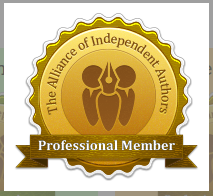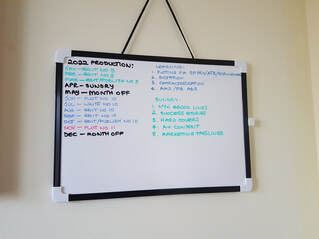 A new year is just around the corner, and as a die-hard planner I've decided on how I want my career to proceed in 2022. I've already shared on this blog how 2020 proved a difficult year for my writing, with my enthusiasm for creating fiction largely gone. While that's mostly now sorted, I don't want to push myself too hard in 2022 and risk losing my writing mojo again. With that in mind, I've created a fairly relaxed schedule that allows me time off and still publish two novels in 2022. So where am I with my ninth novel? The answer is that it's well under way, with 23,000 words done. The plan is to complete the first draft by the end of 2021, ready to start editing in January 2022 and publish the book in March. That gives me enough time to plan, write, edit and publish my tenth novel by the end of 2022, while also working on sundry other projects such as getting some of my novels into hardback format. I also aim to streamline my process and make it more efficient by using speech to text software, which is far quicker and more accurate than my ham-fisted typing. A snail could type quicker than me and probably make a better job of it! I've also bought timeline software that should help during the planning phase of my novels. I didn't achieve as much as I wanted in 2021, but I did release 'She'll Never Tell' in August and my second box set, 'Shadows of the Mind 2', a month later, which is far more than I managed in 2020. I'm cautiously optimistic about 2022 - bring it on!
1 Comment
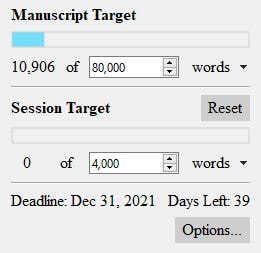 On January 5, 2021, I posted my writing goal for the year, which was to publish two novels. My eighth full-length title, She'll Never Tell, was released on August 31, 2021, and I soon realised that planning, writing, editing and publishing another before the end of 2021 wasn't going to happen. My solution? I decided to release a novella instead, figuring that 30,000 words was doable even if 80,000 wasn't. Life, however, proceeded to throw me a curve ball or two, and it soon became apparent that getting a novella out by December 31 wasn't feasible either. That's not such a bad thing - apart from my reader magnet, Blackwater Lake, I write longer fiction, which is my preference. With that in mind, and with my 2021 writing goals blown anyway, I decided to grow my novella into a full-length novel. I'm now almost 11,000 words into the book, and I'm busy working on the additional plot elements. It's been great fun throwing all kinds of wicked stuff at my hapless characters! I'll post in more depth later about the storyline, but it involves a dark obsession based around a heart transplant! My aim is to plot the novel during November and write it during December, using speech to text software to speed things up. If all goes well, the novel should be released next spring. Fingers crossed! I'm delighted to say that my eighth novel, She'll Never Tell, has now been published in kindle format via Amazon. The paperback version will follow shortly. The book has been getting great reviews so far! Here are a selection: LC - There are red herrings everywhere, and I pride myself on spotting these, but not this time. There are so many revelations that I didn’t expect, include a couple of massive ones near the end of the book. This really was an excellent example of a psychological thriller and I read it in one day. I had to know! A fast paced read full of suspense and ⭐️⭐️⭐️⭐️⭐️ NM - Wow!! What a very clever concept and one perfectly executed. Skillfully constructed and a plot that comes alive putting the pieces of the puzzle together. A highly recommended read. DD: If you like well-drawn characters, a twisting plot & several unexpected turns of events, then this is the book for you. Highly recommended. LH - I loved it… - that ending!! Wow! As you can imagine, I'm delighted by such great feedback. If you'd like to check out She'll Never Tell, then the Amazon link is in the button below. Two women. One secret. How many lies?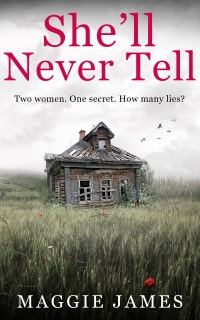 The sudden death of her mother shatters Olivia Gilchrist’s world. Grief turns to shock when a post-mortem reveals Sonia has lied to her daughter in the cruellest possible way. Angry and hurt, Olivia vows to uncover the truth. Meanwhile, Olivia’s neighbour, Elena, harbours a dark secret. Now the past has caught up with her, forcing Elena to go into hiding. Olivia soon discovers Elena was involved in Sonia’s deceit. She has questions she’s desperate to ask her former neighbour. Olivia suspects, however, that Elena is warped and unstable. Tracking her down may be difficult and dangerous. The temptation proves too strong, and a game of cat and mouse with a vengeful woman ensues. One that has the potential to turn deadly… A gripping novel of psychological suspense, She'll Never Tell is the story of a decades-old secret that refuses to stay hidden. Drum roll, please! My eighth novel, She'll Never Tell, is now available for preorder in kindle format from Amazon. Publication date is August 31. The paperback version will be released soon after. Here's the link: She'll Never Tell.
The sudden death of her mother shatters Olivia Gilchrist’s world. Grief turns to shock when a post-mortem reveals Sonia has lied to her daughter in the cruellest possible way. Angry and hurt, Olivia vows to uncover the truth. Meanwhile, Olivia’s neighbour, Elena, harbours a dark secret. Now the past has caught up with her, forcing Elena to go into hiding. Then Olivia discovers Elena knows what Sonia did thirty years ago. She has questions she’s desperate to ask her former neighbour. Olivia suspects, however, that Elena is warped and unstable. Tracking her down may be difficult and dangerous. The temptation proves too strong, though. A game of cat and mouse with a vengeful woman ensues. One that has the potential to turn deadly… A gripping novel of psychological suspense, 'She'll Never Tell' is the story of a decades-old secret that refuses to stay hidden.  After such a stressful 2020, I 'm relieved we're in 2021! Yes, I know the covid-19 infection takes no notice of dates, but there's something about a new year that always inspires me. I love setting goals for myself, yet I achieved little on the writing front in 2020. For much of the year my enthusiasm for writing novels evaporated, and I questioned whether to continue with my author career. That struggle is still with me to some extent, but I've made significant strides in conquering my demons. From talking to my author friends, it seems disillusionment is an occupational hazard! Onwards into 2021! One thing I'm clear on - I'm keen not to overstretch myself this year. I've read social media posts from authors who publish a book a month; just the thought exhausts me. I want balance in my life, not burnout. Besides writing, I have other priorities in my life, such as health and fitness, improving my spoken Spanish and learning to paint abstract acrylics. Writing is hugely important, but not at the detriment of my other goals. With that in mind, I've set myself modest and very achievable targets for 2021. My aim is to publish my eighth novel, currently in first draft format, and write and publish my ninth novel. That's two releases in one year, much better than 2020, which was a zero-release year. It's a far cry from joining the book-a-month brigade, but I'm comfortable with that. Wish me luck! December 1 marks a very special anniversary for me! As of December 1, 2020, I've been a full-time novelist for six years! It's been a rollercoaster ride in many ways, but I have no regrets. I've blogged before about my first five years (see post here), so I won't go over old ground. 2020 has been a challenging year for my writing, with no books published and a distinct lack of mojo on my part. I'm working hard to get back on track, with my eighth novel now completed in draft, and I've started plotting number nine. I've never regretted my decision to go full-time, although writing can be a very isolating profession, and one that has various pitfalls. I'm fulfilling my childhood dream, however, and I love that I can combine writing with my love of travel. So long as I have a laptop and an internet connection, I'm good to go! My plans for 2021... I love setting myself goals! As we approach the end of 2020, I'm already considering what I want to achieve in 2021. I've no plans to change genres - I enjoy writing psychological suspense novels, so that's what I'll continue to do. Ideally I'd like to publish two books a year, one every six months. My process isn't as quick or efficient as it should be, however - editing takes me forever! - and I suspect a novel every eight or nine months is more realistic. We shall see.
Other goals? I aim to grow my email list and Facebook readers' group, and market my books better. Most importantly, I want to recapture my love of writing, which has been sadly absent for much of 2020. 2021 needs to be about FUN on the creative front! Whatever happens, I'm very grateful to my readers for their support and encouragement. Thanks to each and every one of you! 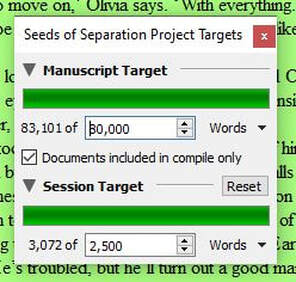 Woo hoo! I'm delighted to report that I've finished the first draft of my eighth novel. I've blogged before about how difficult I've found writing this year, so this is a happy day for me. A long road still lies ahead before publication, as the editing process takes me ages! First, though, I need to set the manuscript aside for a while. This is so that when I start editing I have the benefit of distance, enabling me to spot errors, plot holes, etc., more easily. What will I do in the meantime? After a short break, I'll work on plotting novel number nine. I have some ideas already, so it's a case of choosing one, then fleshing out the story. For me, plotting is the hardest part of the writing process. By nature, I'm a planner, but that doesn't work so well for my books. After a while, I itch to start writing and stop plotting. In addition, I often find that what seems a great idea at the plotting stage doesn't work so well in practice. I'm still developing the way I write, so it's all part of the learning process. I'll keep you posted as to progress with number eight! I'm getting there... 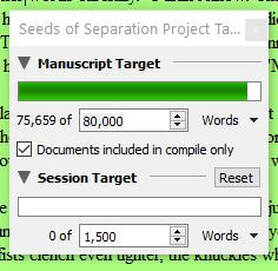 I've shared on this blog and on social media how my writing mojo deserted me for several months earlier in 2020. (Read my other post on this subject here: When novelists lose their love of writing). I don't think the issue was related to the covid-19 pandemic, as my disillusionment began before lockdown happened in the UK. I suspect I'd been pushing myself hard for a while (I'm very goal-driven!) and just needed a break. I spent the time relaxing, reading and enjoying the summer, and didn't worry too much about whether my writing mojo would return. Luckily, it has. My output isn't back to what it was before, when my average daily output was c2,200 words. Nowadays I manage between 1,200 and 1,500 before my creativity wanes, but that's OK. There's no rush. It's more important that I regain my love of writing rather than fret about how many words I write, or how long I'm taking to finish a book. I'm very close to completing my eighth novel, though! As of today's date I've written 75,659 words, and I estimate another 11,000 will see the book completed in first draft format. After that will come the lengthy (for me, anyway!) task of polishing my prose, weeding out any plot holes and getting the manuscript ready for my beta readers/editor. I'll keep you posted! Author burnout - an occupational hazard?  Some of you already know that I've struggled to find my writing mojo in 2020. All was well until February, when I suddenly found I couldn't summon up the desire to write. The coronavirus restrictions hadn't yet come into force, so that wasn't the reason. Instead I believe I was experiencing a minor case of burnout. I'm quite a driven individual and over the last two decades I've pushed myself hard in various ways. They include extensive travel (always a joy), moving three hundred miles away, leaving my accountancy career, operating a dog walking business before becoming a full-time novelist, achieving other important goals, etc. It's all been great fun and I have no regrets. But inside me, things were changing. I began to experience a strong urge to slow my life down. The thought of waking up to my alarm clock didn't appeal (did it ever?) I yearned to do more than just write. I wanted to spend time with friends, make new ones, exercise more, improve my Spanish, etc. The pressure authors experience to pump out books filled me with dread. I wanted to write for love, not because I was on a production schedule. To my horror, I realised I no longer wanted to write. Anything. At all. I'd published seven novels as well as a novella and a non-fiction book. Perhaps I'd taken my writing as far as it was meant to go? This wasn't a case of writer's block. I didn't sit in front of a blank screen, desperate to conjure up words. Instead I avoided writing all together, despite having completed a good chunk of my eighth novel. I told myself my writing mojo would soon bounce back. It didn't. Unsure how to proceed, I turned to my author friends for help. To my surprise, they'd either gone through, or were currently experiencing, the same dilemma. Here are some of their comments: I'm having the same doubts as to whether to continue writing, whether its worth the backlash and all the intense hard work. I too want to try to take my writing to the next level, but am plagued by doubts. I had an email from an author friend saying exactly the same thing, and that he was on the verge of quitting. Phew! At least I knew I wasn't alone in this. I was also lucky enough to have a wonderful accountability partner. We check in with each other about our writing goals each Sunday via Skype and midweek via email. During this difficult time he was a huge source of support and encouragement, even when weeks turned into months and I still hadn't written anything. How is my writing going now? I'm pleased to report that, while I'm by no means out of the writing doldrums, things have improved significantly. What's changed? Two things. First, I asked myself whether, given that I'd dreamed of being a novelist for decades, it was likely I'd lost my writing mojo forever. Was this just a blip instead? The answers came back: no, and probably. Second, my writing buddy suggested I write a few words on my novel and see where it took me. I agreed, and committed to doing 1,000 new words the following week. And I did. The next week I managed 5,000 and the one after that, 6000. It's a way off the 2,000+ words I used to write daily before my 'blip', but I'm not worried. I'm writing again, and so far I've added over 24,000 new words to my eighth novel. At times I've even felt flashes of my old drive and energy, which is wonderful.
My aim is to complete the novel and get it to my editor/beta readers by Christmas. I'll keep you posted! Thanks for reading. Combining writing with travel - is it possible?  Patagonia, visited towards the end of my trip Patagonia, visited towards the end of my trip Those who know me well are familiar with my wanderlust! I've been passionate about solo travel for decades now and I've been fortunate to have explored many wonderful countries. For a long time it's been my ambition to combine travel with writing and become, at least for a while, a nomadic novelist. All I need to work is a computer and a decent internet connection, so the idea seemed very achievable. In addition, there were several trips I longed to get under my belt, and most of them were west of the UK, in the Americas. Combined with the nagging feeling I was in somewhat of a rut in Bristol, it wasn't a hard decision to arrange another overseas jaunt. This time I liked the notion of travelling without a set return date. I bought a one-way ticket to Canada to enable me to fly to Toronto in April 2017, with some vague plans as to where to visit after French Canada, which I'd missed on my last trip to the country back in 1990. I ending up spending a couple of months in Canada before I crossed the border into the USA, where I had friends with whom I wanted to reconnect. In America I visited Vermont, then Boston, Philadelphia and Washington, before making my way to Las Vegas, where I hired a car and went touring for a week. My journey included the wonders of Monument Valley, Zion National Park and other beautiful places before I finished up in San Diego. Next came Mexico, El Salvador, Costa Rica, Panama. Colombia, Peru, Ecuador, Bolivia, Chile and Argentina. Towards the end of my trip I seized the chance to travel to the Falklands, South Georgia and the incredible White Continent, Antarctica. WOW!!! What a fantastic experience. The wildlife on South Georgia was awe inspiring - beaches packed full of seals and penguins, accompanied by some very strong fishy odours! As for Antarctica, a friend told me it's like being in a different world, and she was right. The silence, the ice, the remote location… I'd love to return some day and explore further. So how hard was it to travel and write at the same time?  Intriguing Quito, in Ecuador Intriguing Quito, in Ecuador My main fear before I set off was whether I'd be able to combine travelling and writing. My previous trips had usually been done at a fast pace, with lots of planes, trains and buses involved - hardly conducive to the quiet writing environment I prefer! I found it hard to write the first draft of 'His Kidnapper's Shoes' while travelling in 2010-11, and I only completed the book by parking my butt in the gorgeous Bolivian city of Sucre and not leaving until I'd finished. Hence my concern. How would I manage all the sight-seeing I'd want to do while writing my novels? As well as maintaining the rest of my business - marketing, finance, etc? It turns out I needn't have worried. I managed to maintain a full work schedule and still got to visit the sights I want to see. Most times I would work during the morning and get out and about during the afternoon and evenings. I also tried to arrange travel and sight-seeing whenever possible at the weekends. It all worked out really well and my schedule left me plenty of time left to practise yoga, read and socialise. What helped was not having a set itinerary; there was nowhere I needed to be at any particular time. From what I understand, this way of working is becoming more common, with more and more people choosing to become digital nomads. and why not? If your work is internet-based, such as web design or life coaching, then you can earn money wherever you are in the world. You're not location-dependent for your income. It's immensely freeing and if, like me, you love travelling, it's the ideal solution. As I mentioned earlier, I'd become aware I was deep in a rut in Bristol, and needed to break out. It felt right to be backpacking again, with everything I needed in a couple of bags, moving from one wonderful place to another, doing as I pleased. Since my return from that trip, which lasted ten months, I've moved to Newcastle-upon-Tyne and been busy with other things, but I plan to continue combining travel and writing in the future. Who knows, maybe I'll inspire some of my readers to become digital nomads! See you in Rio, perhaps! |
Categories
All
Subscribe to my blog!
Via Goodreads
|
Join my Special Readers' group and receive a free copy of 'Blackwater Lake'!
|
Privacy policy Website terms and conditions of use
Copyright Maggie James 2018 - current date. All rights reserved.
Copyright Maggie James 2018 - current date. All rights reserved.
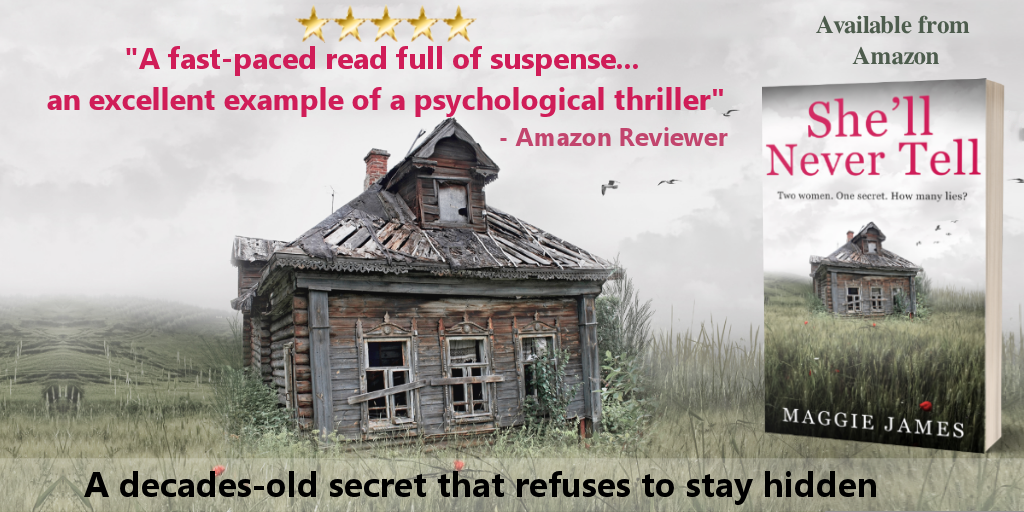
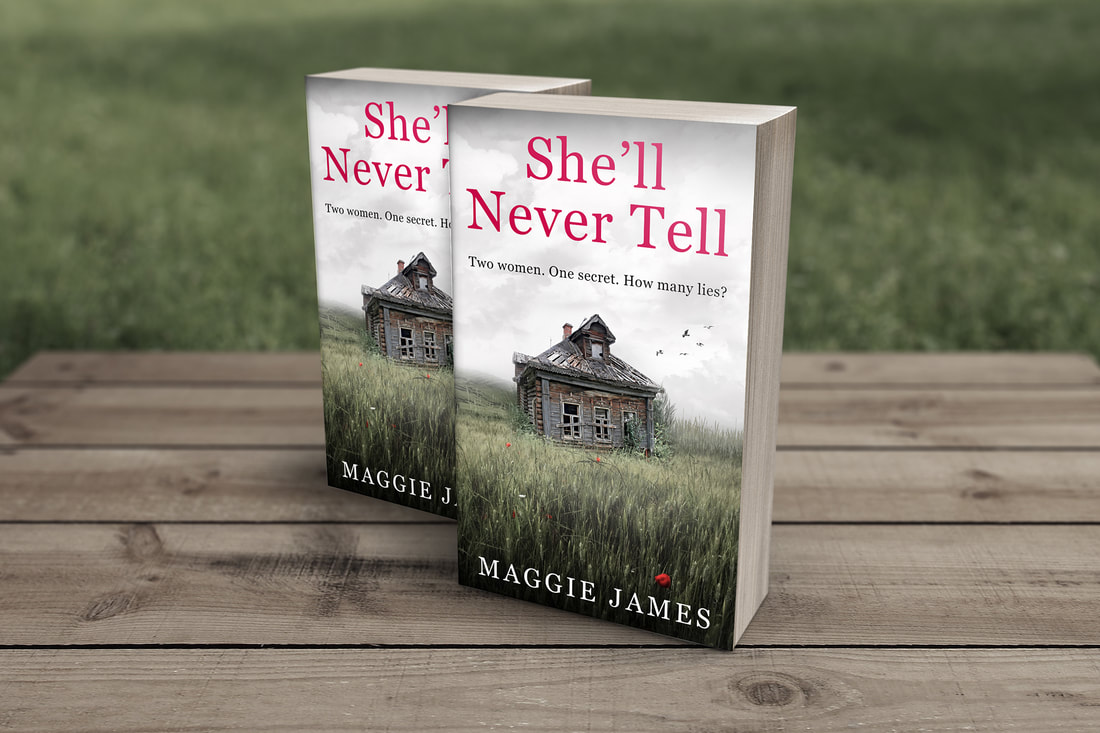

 RSS Feed
RSS Feed
